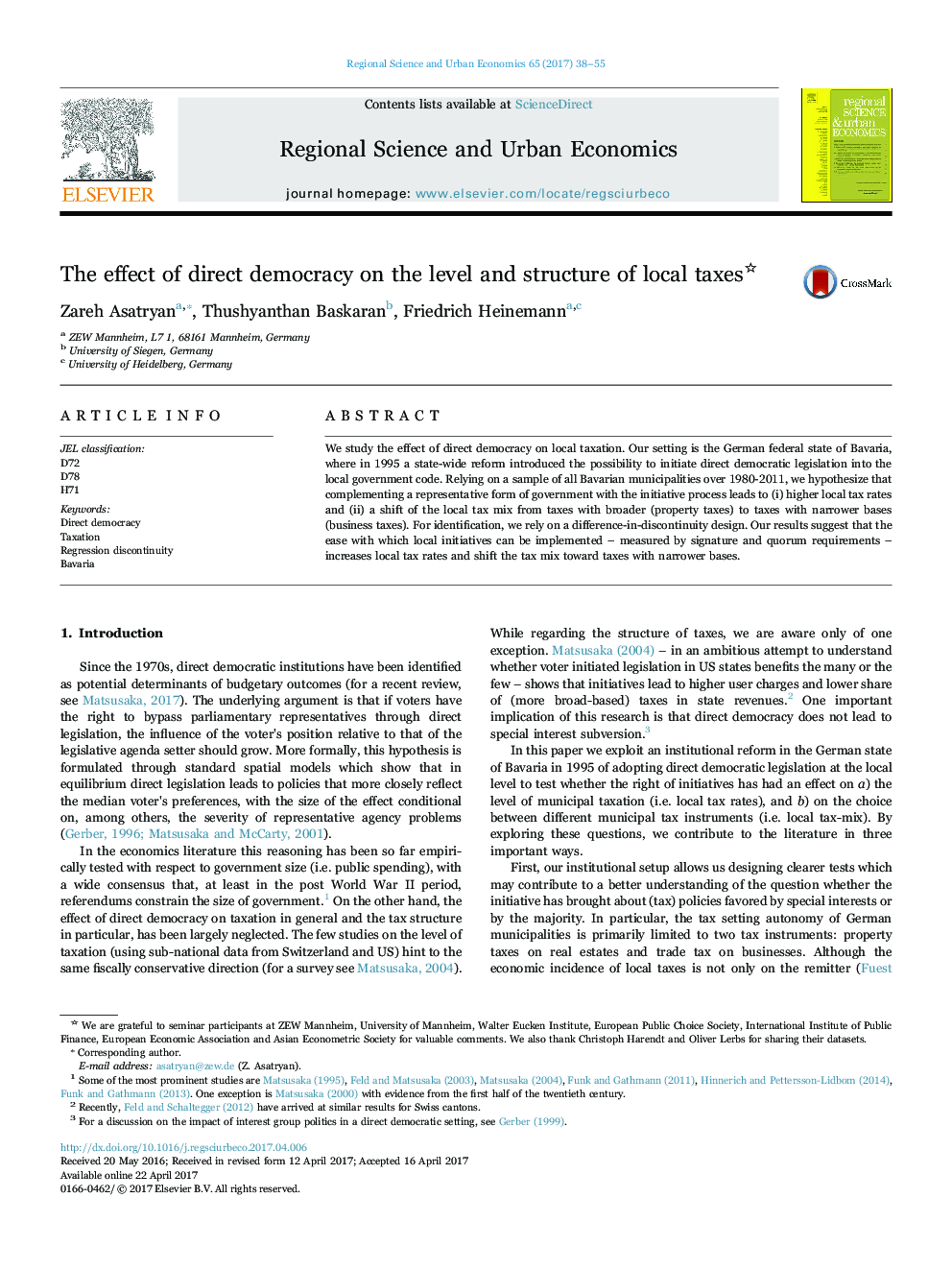| Article ID | Journal | Published Year | Pages | File Type |
|---|---|---|---|---|
| 5103687 | Regional Science and Urban Economics | 2017 | 18 Pages |
Abstract
We study the effect of direct democracy on local taxation. Our setting is the German federal state of Bavaria, where in 1995 a state-wide reform introduced the possibility to initiate direct democratic legislation into the local government code. Relying on a sample of all Bavarian municipalities over 1980-2011, we hypothesize that complementing a representative form of government with the initiative process leads to (i) higher local tax rates and (ii) a shift of the local tax mix from taxes with broader (property taxes) to taxes with narrower bases (business taxes). For identification, we rely on a difference-in-discontinuity design. Our results suggest that the ease with which local initiatives can be implemented - measured by signature and quorum requirements - increases local tax rates and shift the tax mix toward taxes with narrower bases.
Related Topics
Social Sciences and Humanities
Economics, Econometrics and Finance
Economics and Econometrics
Authors
Zareh Asatryan, Thushyanthan Baskaran, Friedrich Heinemann,
